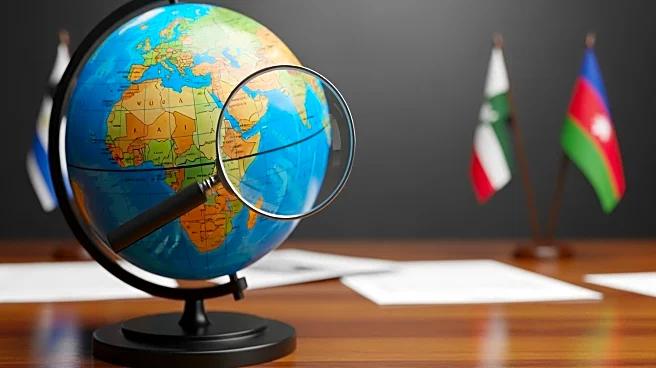What's Happening?
Secretary of State Marco Rubio has issued a warning against the annexation of the West Bank following a recent vote by the Israeli parliament. The vote has sparked international concern, with Rubio emphasizing the potential consequences of such a move.
His visit to Israel comes at a critical time as tensions in the region continue to rise. Rubio's statement reflects the U.S. government's stance on maintaining stability and seeking peaceful resolutions in the Middle East. The annexation of the West Bank has been a contentious issue, with various stakeholders expressing differing opinions on the matter.
Why It's Important?
The warning from Secretary Rubio highlights the delicate balance of international relations in the Middle East. The annexation of the West Bank could lead to increased tensions not only between Israel and Palestine but also among other nations with vested interests in the region. The U.S. plays a significant role in Middle Eastern diplomacy, and Rubio's comments may influence future negotiations and peace efforts. The potential annexation could disrupt ongoing peace processes and affect U.S. foreign policy, impacting diplomatic relations and economic ties with countries in the region.
What's Next?
Following Secretary Rubio's warning, diplomatic efforts may intensify to prevent the annexation and seek alternative solutions. The U.S. and other international bodies could engage in discussions with Israeli leaders to address concerns and explore peaceful resolutions. The situation may prompt further dialogue among Middle Eastern countries, potentially leading to new agreements or initiatives aimed at stabilizing the region. Stakeholders will likely monitor developments closely, assessing the implications for regional security and international diplomacy.
Beyond the Headlines
The potential annexation of the West Bank raises ethical and legal questions regarding territorial sovereignty and the rights of affected populations. Long-term implications could include shifts in regional alliances and changes in international law interpretations. The situation underscores the complexity of Middle Eastern geopolitics, where historical grievances and modern political dynamics intersect. The U.S. may need to navigate these challenges carefully to maintain its influence and promote peace in the region.















